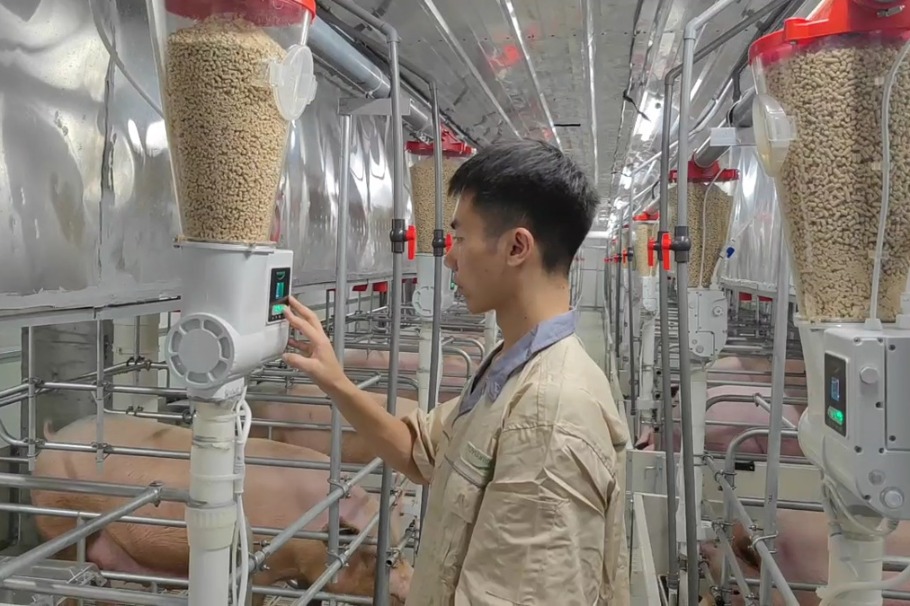When are selfies no longer selfies?

Suddenly, a panda appeared beneath my hand, munching bamboo. I also had furry black ears and oddly large eyes.
That was just the beginning.
In other photos and GIFs, galaxies swirled around my face, and ghostly, glittering whales swam around me amid a sea of sparkles.
Then, my nose sprouted a bandage while leaves fluttered from the sky in front of me. Later, butterflies flittered glitter on my head like they were shaking pixie dust off their wings.
And, finally, hongbao - red envelopes filled with cash, given during certain Chinese festivals - poured down on my head. It's the first time in my life money has rained down on me.
China's super-popular selfie apps are recreating the world - or at least how it's perceived online.
The country's social media is in the throes of the takeover of makeover apps.
"Beauty apps" alter reality to make it picture perfect.
Some, like Meitu - the most popular such app - automatically apply cosmetics. Users can try on virtual lipstick from the likes of Dior and Giorgio Armani, and order physical cosmetics in the store. But there are even so called "beauty smartphones". They cost around 8,000 yuan ($1,200), and their sole function is as a camera that automatically augments your appearance.
There are over 3,400 such apps in the Chinese market, and half of Chinese with smartphones use them, data company Jiguang reports. Most use at least two.
These offer filters to automatically make your eyes larger, face slimmer and the bridge of the nose higher, in accordance with mainstream Chinese beauty preferences. There are also manual-editing options.
I downloaded Meitu and confess I took its beauty functions to the extreme to see how far they'd go. I enlarged my eyes and slimmed my chin until I looked like an alien.
Now, the beauty apps are meant to be convincing.
It's agreed upon that obvious over editing is undesirable.
Some internet stars reportedly refuse to make public appearances because people may see what they look like in real life.
This says something about how our online lives are increasingly divorced from our relationship with physical reality.
But these apps' augmented reality options, which are growing in popularity, show a new side of the phenomenon of curated social-media presence that's totally and purposefully unhinged from reality - just for fun.
Nobody views these photos and believes a shimmering Pegasus is trotting across the air over their hair, or a shark has swallowed their head, or that their face has turned into a textbook's cover.
They're for giggles.
The beauty functions, instead, perhaps point to an ugly insecurity that propels people to present what's essentially a mask of their own face.
Maybe making themselves look "better" actually makes them feel worse.
How much of themselves is in their selfies?
Or perhaps it's merely a fashion innovation of the 21st century - the digitization of makeup and cosmetic surgery, which are ancient practices.
It's hard to say if beauty apps create a pretty picture of people in the digital era or not. That said, it's always fun to pet pandas - even if only virtually.
Contact the writer at erik_nilsson@chinadaily.com.cn
(China Daily 07/26/2017 page2)
- Beijing-Tianjin-Hebei 2025 celebrations shine at Zhengding county
- Multiple legal, policy measures take effect in China
- SCIA elevates global reach with launch of new English website
- Legacy of Tea Horse Road lives on in Yunnan village
- Brewing rich legacy of tea culture
- China's unfolding story of innovation, unity and influence





































